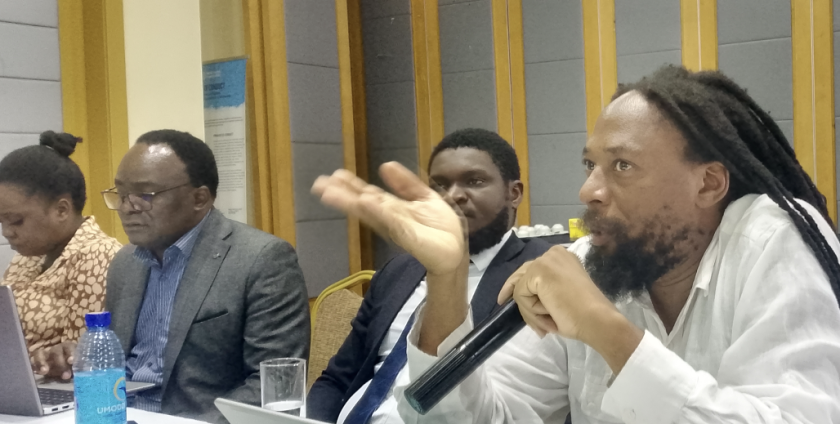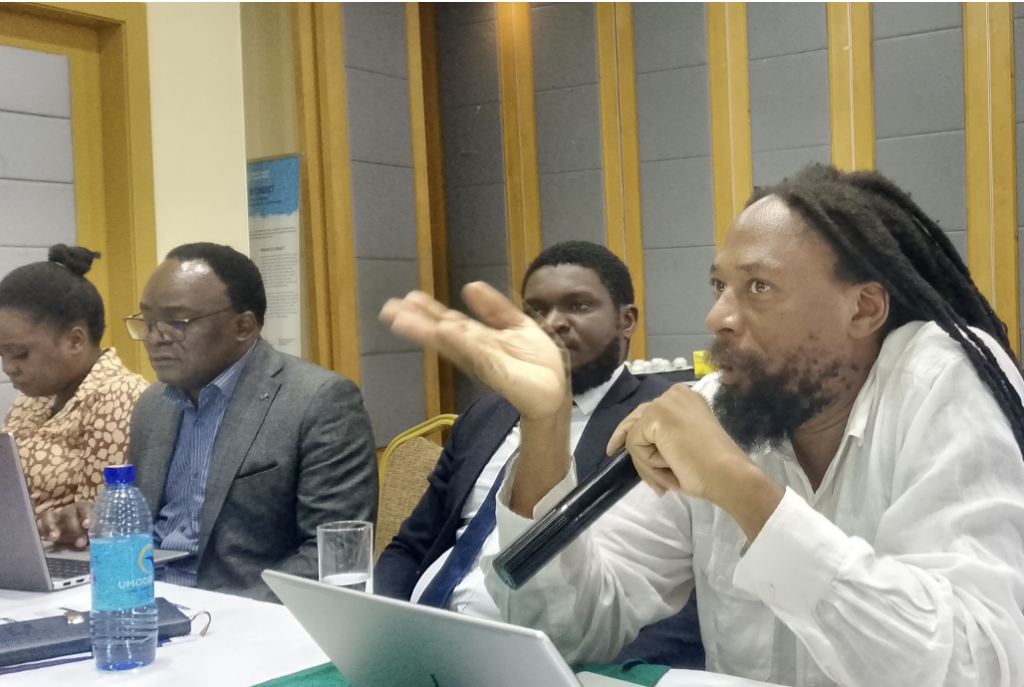
A national dialogue with key stakeholders from the Ministry of Justice in the department of Intellectual Property, Ministry of Trade, Ministry of Health, Association of Local Manufacturers, Media and Civil Society Organizations representing PLHIV as well TB Communities in Malawi held on 4th June 2025 echoed the need for strengthening access to commodities for HIV, TB, cervical cancer, hepatitis C and other disease conditions through boosting national capacity for the country to locally produce medicines.
The dialogue follows a Market Intelligence Study of priority HIV and TB products in Malawi.pdf that was recently commissioned by the Kenya Legal and Ethical Issues Network on HIV and AIDS (KELIN) in collaboration with Community Health Rights Advocacy (CHeRA-Malawi), and supported by the International Treatment Preparedness Coalition (ITPC) Global. The Study found that Malawi’s health system is heavily reliant on international procurement and donor funding with minimal government contribution to the importation of HIV and TB Commodities. Further, the most highly imported TB Commodities are Rifampicin-Isoniazid (RH 150/75 ) used in the continuation phase of TB treatment and Rifampicin -Isoniazid -Pyrazinamide-Ethambutol (RHZE 150/75/400/275,)used in the intensive phase of TB treatment, while for HIV, Tenofovir disoproxil fumarate- Lamivudine – Dolutegravir (TDF/3TC/DTG), a first line regimen recommended by WHO for adults and adolescents living with HIV alone accounted for over USD 35 million in imports. The study noted that despite GeneXpert Cartridges being considered as essential diagnostics, their prices remain disproportionately high despite lower import volumes highlighting a need to address affordability. No evidence of significant local manufacturing or regional procurement initiatives was identified.
The study also noted that the quality of procurement analysis has been limited by data inconsistencies and lack of real-time centralized data which has further prevented predictive modelling for future commodities needs. Based on the foregoing, stakeholders observed that with the current global shifts in funding priorities, gains made in combating HIV, TB faces a great risk should there be failure to put in place sustainability measures to cushion the already fragile health systems.
The Consultant, Benjamin Azariah Mosiwa while demonstrating how funding crises and fragile health systems continue to undermine access to essential medicines in Malawi, further pointed out that all hope is not lost as there exist opportunities to explore local production which is likely to offer a more sustainable solution to the current funding crisis. He further suggested that there is need for adequate policy and system changes to be put in place further reiterating that the government must lead with strategic reforms i.e the Integration of local production in national industrial and health policies, promoting strategic policies that favor domestic producers: e.g. tax incentives on inputs and production infrastructure, and incentivization of R&D and local innovation, enabling technology transfer and training through partnerships and finally the promoting alignment across health, industry, and finance sectors.
“We should note that donors are pulling out aid thereby impacting on health systems and access to essential medicines. So, the question is why can’t Malawi start to locally manufacture essential medicines? Manufacturing locally can help address stock outs and the over reliance on imports of medicines.” Mosiwa observed. However, he noted that the country needs to put an enabling policy environment to spur innovation and encourage local manufacturing which remains challenging at present.

During the dialogue, Chifwayi Chirambo, the Deputy Director in the Office of Registrar General in the Intellectual Property Office stressed on the need for the country to start making use of the flexibilities they have in the law to move towards local manufacturing of essential medicines.
At present, Malawi is working to review the 2019 National Intellectual Property Policy. This process will provide a platform for stakeholders to put forward their recommendations to the new policy.
“Malawi has not fully utilized the TRIPS flexibilities in pursuit of removing some intellectual property barriers in access to essential medicines. But there is a potential to venture into local manufacturing of medicines” explained Chirambo.
Although the TRIPS Agreement has introduced a multilateral framework with minimum binding standards for the protection of intellectual property rights, there still exists flexibility within the provisions of the Agreement that permits countries to determine how intellectual property rules should be interpreted and applied, to make them more consistent with their national public interest and priorities he reiterated.
Harriet Kakhobwe of Paradiso TB Patients Trust noted that funding cuts have brought a lot of uncertainty amongst most TB patients as many are continuously grappling with the fear that their health will decline seeing that access to essential TB Commodities is not guaranteed with the ongoing funding cuts.
“Most members are confused and think with funding cuts they will stop accessing their TB medicines in public facilities due to growing misinformation.” Kakhobwe discloses.
The programmatic sustainability of US-funded HIV activities remains uncertain. For Malawi, out of $396,479,874 total USAID HIV funding, three awards worth $219,999,996 (55%) are retained and as active grants and six awards worth $176,479,878 (45%) are terminated. Of the terminated awards, $57,200,303 (32%) was for five-year grants that were ending in March 2025. To cushion health programming, the Government of Malawi, through the Ministry of Health, is developing an integration framework aimed at harmonizing all key health programs, including TB, Malaria, and HIV. Additionally, the government is mobilizing resources to strengthen and sustain health interventions.
Local production is not a silver bullet but a critical path to resilience that requires a coherent package, i.e. enabling policy, strong regulation, investment incentives, and capacity building, which must be part of a broader strategy to strengthen national health security and reduce inequity. The real question is not whether local production can help, but whether governments and partners are willing to make it work. With the right commitment, Malawi can build a pharmaceutical future defined by self-reliance, equity, and innovation.
As KELIN, we welcome and commend the Government of Malawi’s efforts to integrate health services as a step towards strengthening the health system and improving service delivery. We strongly advocate for increased investment in local production through the alignment of strategies, incentivizing local pharmaceutical firms and domestic resource mobilization to ensure the sustainability of health programming, especially in light of shrinking donor support. We also urge the government, through the relevant departments, to prioritize the reform of intellectual property (IP) laws to enhance equitable access to essential medicines and health technologies while also ensuring that flexibilities within the IP Laws are utilised i.e. the issuing of Compulsory Licenses. These are critical measures towards achieving accessible, available, acceptable, affordable, and quality healthcare for all.
0 Comment
Leave a Reply